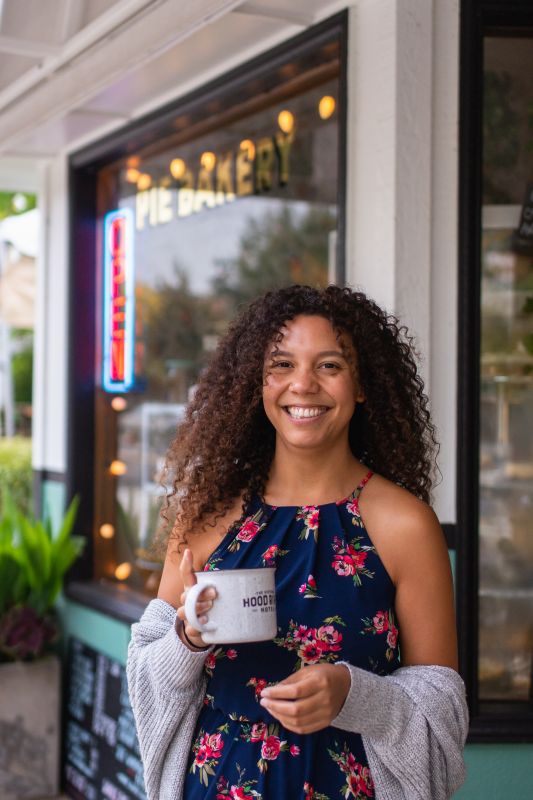
With the help of an IDA, Crystal Granger was able to go to college debt free, which then paved the way for her to buy a home.
In 2011, Crystal Granger was a student at Portland Community College (PCC), working at the front desk of a hotel. Living on minimum wage, Granger notes, “I’d learned how to work with what I had, but also I liked to read community bulletin boards, and find ways to make extra money when I needed it.”
Granger came across a sign inviting readers to “Earn $50 by participating in a financial health class.” She signed up for the class at Bradley Angle, an IDA partner of CASA of Oregon. She learned that Bradley Angle was a space for people affected by domestic violence and found it to be a powerful experience to take the class alongside the other participants. At the end of the course, class participants were introduced to the IDA program. She comments, “It opened up this door that was huge for me: The life changing IDA program.”
As she saved in her IDA, Granger transferred to Portland State University. She notes, “The IDA allowed me to graduate debt free. I think that was big. I was able to get a four-year degree without having to take out any loans.”
Granger states, “Generational wealth is passed on. That’s starting to finally sink in for me.” She was aware that her parents, an interracial couple, were only able to purchase their home by putting her white mom on the title and deed and leaving her Black father off of it, thus giving up any legal right to the property and its wealth-generating effects. When Granger saw the differences in opportunity around her, she felt like her debt-free education was starting to finally level the playing field.
Then, in 2016, Granger was injured in a horrific bike accident. As she recovered, she was able to secure a financial settlement. She used the settlement to invest in a down payment on a condo. “I think the reason I’m able to make these mortgage payments is because I don’t have student debt, and it all goes back to the IDA program. Helping me put myself in this position where when a moment came, that I was able to put a big piece of that moment into securing a mortgage where I would have property to pass on,” she explains.
As a lifelong resident of Northeast Portland, it’s also meaningful to Granger that she was able to purchase in a historically predominantly African American part of town, where development policies supported by white city leaders and residents have displaced many Black families. She states, “When I bike across the Broadway Bridge to go to work downtown, biking across this river that’s an artery of our city, it brings me so much joy. And I’m glad I get to stay and help our community prosper as much as possible.”
